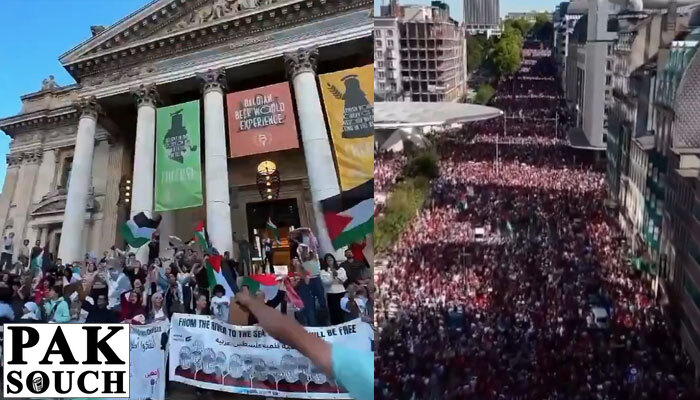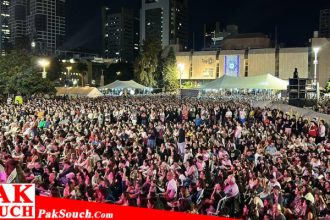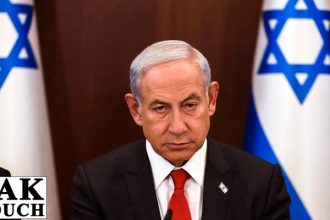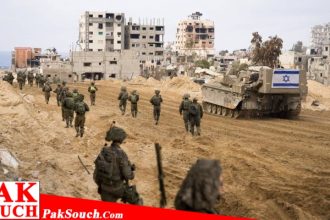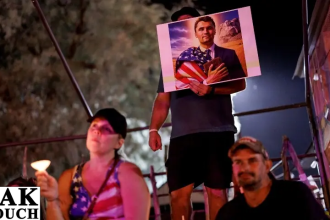A wave of international protests erupted over the weekend as thousands of demonstrators across Europe voiced outrage over the ongoing Israeli military actions in Gaza. The largest demonstrations took place in Brussels, the capital of Belgium, where crowds gathered in the city center before marching towards the headquarters of the European Commission. Protesters carried Palestinian flags, chanted slogans against Israel’s military offensive, and demanded that the European Union take concrete action by imposing sanctions on Israel.
Speakers at the Brussels rally accused the international community of double standards, emphasizing that while sanctions have been used in other global conflicts, Israel continues to act with impunity. Human rights activists, student groups, and trade unions joined the demonstration, stressing the urgent need for an immediate ceasefire and humanitarian access to Gaza, where civilian casualties and destruction have been mounting at alarming rates.
Similar displays of solidarity unfolded across other European cities. In Milan, Italy, hundreds of demonstrators gathered in public squares, holding placards that read “Freedom for Palestine” and “Stop the Occupation.” They lit candles in memory of Palestinian victims and called on their government to break silence on Israel’s escalating aggression.
In London, a large pro-Palestinian rally turned tense as police intervened to disperse crowds. According to reports, nearly 890 demonstrators were detained by London’s Metropolitan Police, a move that drew criticism from civil rights organizations. Protesters accused British authorities of silencing voices calling for justice and peace, while stressing that the UK must pressure Israel diplomatically instead of targeting its own citizens.
Interestingly, protests were not limited to Europe alone. Inside Israel, public frustration also became visible. In Tel Aviv, groups of Israeli citizens staged demonstrations demanding that Prime Minister Benjamin Netanyahu’s government agree to a ceasefire deal. Many participants argued that prolonging the war not only devastates Palestinian lives but also isolates Israel internationally and deepens domestic divisions.
In Ireland, political symbolism was evident during a football match where Irish fans unfurled a large banner reading: “Show Israel the Red Card.” The protest highlighted how sporting events, often considered apolitical, have increasingly become platforms for expressing solidarity with Palestinians and calling for accountability.
Analysts believe the scale and coordination of these protests reflect a shifting public mood in Europe. Growing numbers of citizens are frustrated with what they see as the inaction of Western governments in the face of mounting humanitarian crises in Gaza. Calls for boycotts, divestment, and sanctions are gaining traction, particularly among younger generations and civil society movements.
The demonstrations also underscore how the Gaza conflict has transcended borders, resonating with global audiences as both a human rights and political issue. As international pressure builds, observers say Israel may find itself increasingly isolated unless diplomatic initiatives for peace are urgently pursued.
With protests spreading from the streets of Brussels to football stadiums in Ireland, the message appears consistent: the world is demanding accountability, an end to violence, and a serious commitment to justice for Palestinians.



